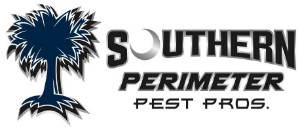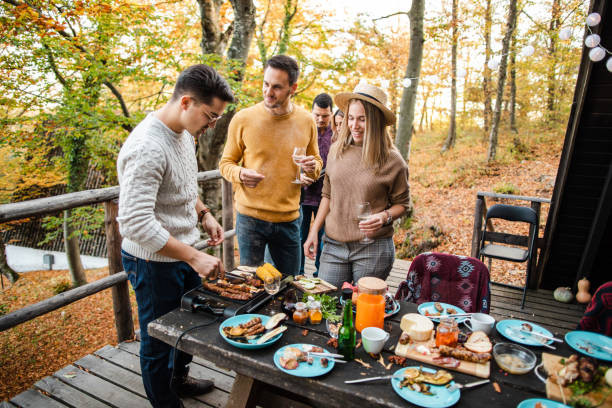A Guide to Keeping Pests Away from Your Food at Autumn Events
Effingham, United States - September 18, 2025 / Southern Perimeter LLC /
Autumn gatherings can unleash swarms of ants and wasps that ruin outdoor meals, but a few targeted strategies can keep your picnic area pest-free and enjoyable. This guide empowers homeowners and business owners with actionable insights into why these insects target fall festivals, proven DIY deterrents, professional intervention timing, seasonal planning tips, and safe food-area treatments—all while illustrating how residential pest control services bolster long-term protection.
Why Are Ants and Wasps a Problem at Fall Picnics?
Ants and wasps invade outdoor events because they forage intensively in autumn to stockpile protein and sugars before winter. Their scavenging behavior threatens food safety, guest comfort and can lead to painful stings or contamination that detracts from the festive atmosphere. Understanding their seasonal habits lays the groundwork for effective prevention.
What Ant Species Are Common at Fall Outdoor Events?
Fire ants are aggressive foragers that prefer protein and fats.
Sugar ants act as trail-forming scouts and mainly consume sweet foods.
Carpenter ants are wood-nest builders that feed on plant and insect debris.
These species construct nests near foundations or tree roots, increasing the chance of trails leading to open picnic baskets. Recognizing common culprits helps refine barrier strategies before refreshments appear.
When Are Wasps Most Active During Fall Festivals?
Wasps, especially yellow jackets and paper wasps, intensify foraging in late summer through early fall as colonies swell and queens prepare for hibernation. Peak activity occurs from August to October, with warm afternoons driving them toward protein-rich meats and sweet desserts. Anticipating this window guides the timing of repellents and food service adjustments.
How Do Ants and Wasps Attract to Picnic Food?
Both ants and wasps rely on scent to locate nourishment. Ants detect sugars and proteins from picnic blankets, while wasps zero in on sweet drinks, fruit juices and grilled meats.
Sugary spills encourage ant trails.
Uncovered desserts invite wasp landings.
Moist barbecue sauces become protein lures.
Minimizing food odors and maintaining a clean serving area interrupts their chemical signals, setting the stage for hands-off pest-free dining.
What Are the Best DIY Methods to Keep Wasps and Ants Away from Your Picnic?
Simple remedies harness natural repellents and physical barriers to deter fall insects without chemicals, offering immediate relief and confidence in protecting guests.
Which Natural Repellents Effectively Deter Wasps and Ants Outdoors?
Peppermint Oil – Diffuse around seating areas to confuse scent trails.
Citronella Candles – Emit vapors that repel yellow jackets and sugar ants.
Cinnamon and Coffee Grounds – Sprinkle barrier lines to interrupt ant paths.
These repellents improve guest comfort and can support broader residential pest control efforts by reducing local insect pressure.
[The Effectiveness of Essential Oils as Insect Repellents]
Research indicates that essential oils, such as peppermint and citronella, can effectively repel various insects. These oils disrupt insects' ability to locate food sources by interfering with their scent trails, making them a useful component in pest control strategies.
This research supports the article's recommendation of using peppermint oil and citronella candles as natural repellents to deter ants and wasps.
How Can You Protect Picnic Food from Ants and Wasps?
Use sealed containers for snacks and beverages.
Cover platters with mesh food tents.
Promptly remove empty dishes and wipe surfaces.
Consistent food management enhances existing perimeter treatments and reinforces a culture of sanitation that discourages pest return.
How Do You Set Up a Pest-Free Zone for Outdoor Parties?
Position tables away from trash and tree lines.
Place decoy plates of fruit at a distance to lure wasps away.
Direct oscillating fans toward seating to disrupt flight patterns.
These steps blend seamlessly with ongoing residential pest control programs to deliver a fail-safe environment for fall celebrations.
When Should You Call Professional Pest Control for Outdoor Event Pest Prevention?
DIY tactics excel for small gatherings, but larger infestations or high-stakes events benefit from expert intervention to ensure comprehensive protection and peace of mind.
What Are the Signs of a Larger Ant or Wasp Infestation at Your Picnic Area?
Multiple established nests within 20 feet of gathering spaces.
Persistent ant trails despite repeated barriers.
Aggressive wasp behavior around entry points.
Prompt recognition of these symptoms prevents emergency situations and supports targeted solutions.
How Do Professional Pest Control Services Protect Fall Festivals in Florence, SC?
Local specialists inspect event perimeters, identify colony sites and apply focused treatments that interrupt insect life cycles. Their experience with regional ant and wasp species ensures treatments improve safety and comfort without disrupting your event schedule.
What Are the Advantages of Pre-Event and Perimeter Treatments?
The Pre-Event Barrier Spray blocks insect entry and lasts for up to four weeks.
The Nest-Targeted Residual Gel eliminates the colony at its source with immediate results.
The Landscape Perimeter Dust creates a long-lasting deterrent that remains effective for six to eight weeks.
Professional services enhance DIY measures by extending protection windows, reducing revisit need and safeguarding high-traffic zones against repeat invasions.
How Can You Plan Ahead for Effective Fall Picnic Pest Prevention?
Seasonal planning integrates routine maintenance with event-specific tactics to create a year-round pest-resistant landscape.
[Integrated Pest Management for Outdoor Events]
Integrated Pest Management (IPM) strategies, which combine various methods like physical barriers, natural repellents, and targeted treatments, are effective in controlling pests in outdoor settings. IPM emphasizes a proactive approach, including pre-event inspections and ongoing maintenance, to minimize pest populations and reduce the need for chemical interventions.
This citation supports the article's emphasis on a multi-faceted approach to pest control, including DIY methods, professional services, and preventative measures.
Why Are Pre-Event Inspections Important for Outdoor Gatherings?
Inspecting yards and venue grounds several weeks before an event identifies nests and ant runways before they pose risks. Early detection enables targeted treatments that prevent insect populations from reaching nuisance levels when guests arrive.
What Ongoing Pest Control Practices Help Maintain a Pest-Free Outdoor Space?
Schedule quarterly perimeter treatments to suppress emerging colonies.
Encourage landscaping that limits moisture build-up near structures.
Implement regular waste emptying and debris removal.
Consistent practices improve the effectiveness of residential pest control plans and reinforce a proactive stance against fall festival invaders.
What Safety Measures Should You Consider When Using Pest Control Around Food?
Safety is paramount when combining pest management with food activities. Family- and pet-safe approaches ensure protection without risk to guests or the environment.
Which Family- and Pet-Safe Pest Control Methods Work Best Outdoors?
Organic Repellent Sprays – Plant-based formulas pose minimal toxicity.
Diatomaceous Earth – Physical barrier gently dehydrates insects without chemicals.
Encapsulated Baits – Target pests at foraging sites while remaining inaccessible to pets.
Choosing these methods supports a responsible residential pest control strategy that respects health and habitat.
How Does Proper Food Storage Reduce Pest Attraction at Picnics?
Store chilled items in insulated coolers with sealed lids.
Place waste in covered receptacles positioned away from seating.
Schedule intermittent cleanup during the event.
Minimizing odors and debris preserves the integrity of both DIY and professional treatments, ensuring autumn celebrations remain worry-free.
Anticipating ant and wasp behavior through seasonal insights, combining natural deterrents with strategic professional services, and maintaining a safe, clean environment delivers reliable pest prevention. Homeowners and business owners who integrate these tactics with a reputable residential pest control provider can focus on creating memorable fall festival experiences—free of stings, trails, and unwelcome surprises.

Contact Information:
Southern Perimeter LLC
4763 Planer Rd
Effingham, SC 29541
United States
Evan Lee
(843) 601-2791
https://www.southernperimeter.com/
Original Source: https://southernperimeter.com/media-room/#/media-room


